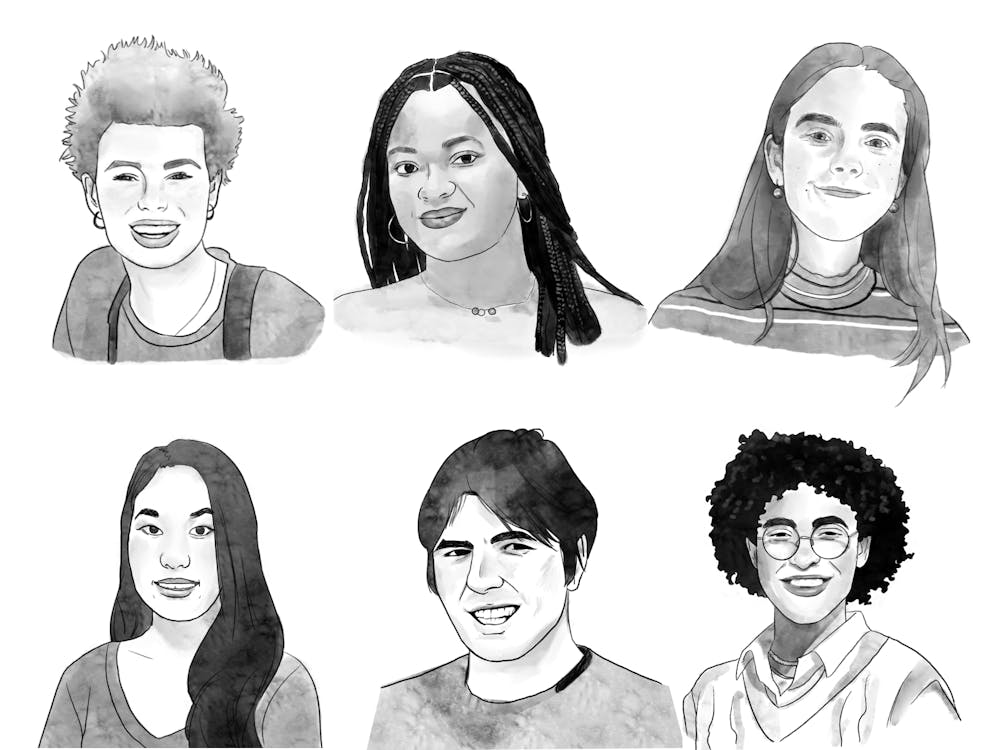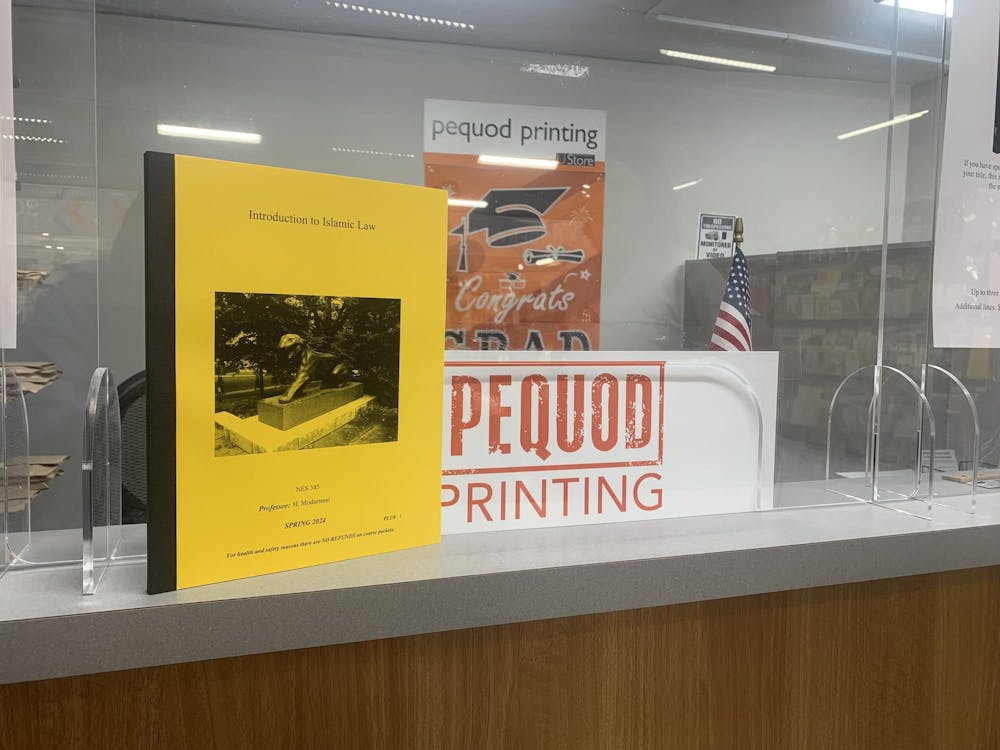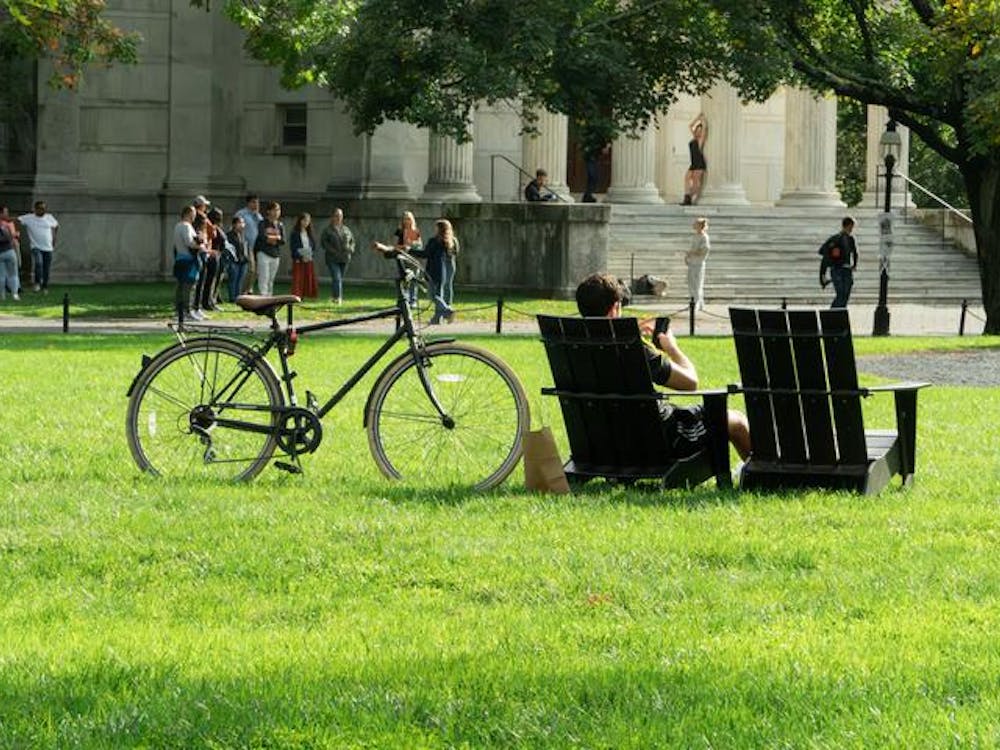Editor's note: The author of this column was granted anonymity due to the intensely personal nature of the events described.
I am writing this column because I am genuinely concerned about the well-being of my fellow students here at Princeton. I wish to share my own story, first, to try to push back against our very real and human tendency to prefer silence over any difficult conversation, and second, because I hope to reignite this crucial discussion regarding mental health at Princeton.
Surrounding the University's Mental Health Week last month, a few perspectives and opinions were raised regarding voluntary or involuntary withdrawals and Princeton's related policies. While it is laudable that efforts were made to promote discussion on this topic, the momentum from that week seemed to stop short of meaningful change. During that time, there surfaced only a couple of articles highlighting students' concerns, a single article from the Office of the Dean of Undergraduate Students and University Health Services in response, and then ... nothing.
To clarify up front, I am currently in a year-long leave of absence from the University. In just the first two months of focused treatment, I am already infinitely better and look to the future with hope. But my situation was not always so positive.
The first two-and-a-half years of my Princeton career were filled with an ongoing battle with clinical depression. Beginning in my freshman year, I began to suffer the classic symptoms: sadness, lowered energy and self-esteem and a loss of interest in activities I used to enjoy (this occurrence is not uncommon; a great number of individuals who will deal with mental illness begin to experience symptoms in their late teen years). This continued through my sophomore year, and it prompted me to intermittently visit Counseling and Psychological Services and talk to a counselor. I generally had a good experience there, and even wrote a few comments on previous years' mental health-related articles to reassure concerned and stressed out individuals that not all CPS counselors were the enemy, as many feared. And as long as my condition stayed manageable, I was content using campus resources as part of my mental and emotional support.
But then it got worse.
Toward the end of the summer and continuing through this past fall semester, my depression became more severe than anything I could have ever imagined. My brain, which was formerly one of my greatest assets, turned against me with a vengeance. I was constantly in a state of inexplicable self-loathing, and if anyone presented "a substantial risk of self-harm," it was me. Entire lectures would pass by without me hearing a single word the professor said; I had to focus all of my mental energy and effort on not scratching myself with the cap of my pen. My daily commute back to my dorm required that I convince myself not to "accidentally" crash my bike on the steps leading to my entryway. I encountered these types of thoughts and impulses several times an hour, nearly every day of every month, and the severity continued for the entirety of the semester.
I regularly saw a counselor off-campus (a privilege that not all students are fortunate to have), but once things got worse I stopped scheduling appointments with CPS; I stopped because I was terrified of the horror stories I had heard. I was scared that Princeton would force me to involuntarily withdraw. I was scared that they would only hear the details that threatened their reputation and liability, and would neglect to consider qualities that my friends and mentors recognized in me — strength, resilience, perseverance and, most importantly, the fact that I had already overcome literally hundreds of dangerous situations in my own head and reached out for help when I knew I shouldn't attempt to conquer them on my own. In short, I was scared of being labeled, stigmatized and defined by my struggle. Though I was already (very seriously) considering a leave of absence, I was thoroughly convinced that if Princeton knew the truth about me, I would lose all autonomy and the ability to make my decision without overwhelming pressure from the administration. My conclusion? Silence was the only option.
During the first of many "check-in" meetings my Director of Student Life requested throughout last semester, she asked me directly, "How is your depression going?" I plastered a smile on my face, told her my depression was "much better, thank you," then immediately returned to my room to cry.
After fall break, with encouragement and support from my family and close friends, I made the choice to take a year off in order to more effectively focus on my treatment and overall health. I was still concerned about losing autonomy, however, and knew that the process would become much more complicated if the University knew the underlying reasons behind my decision. I told those officially involved with my withdrawal that I was leaving for "medical reasons" and they were content to leave the situation ambiguous for a while, until they eventually found out it was for unspecified "mental health" reasons. Then a flurry of evaluations, recommendations and confidentiality waivers ensued mere days before my departure. And the complications only multiplied from there: a month later, via a letter in the mail, I found out that, among a large number of other requirements, it would be "necessary" for me to "sign two copies of the 'Authorization for Release of Information' form: one authorizing your treatment providers to discuss your progress with our clinical staff at CPS, and one authorizing CPS to discuss your readmission evaluation with us." The implications are sobering.
[scribd id=219311265 key=key-owyhzao9i0c73r0vyqd mode=scroll]
If I ever want to return to Princeton as a student, I will have to 'voluntarily' waive my right to doctor-patient confidentiality by signing those two forms.

To the administration, to ODUS and to the directors of UHS and CPS: I understand that you are concerned for students who find themselves in these difficult situations and that you have to worry about liability issues, but the reality is that mental health's stigma in our society presents an enormous obstacle that prevents students from reaching out. Please understand that Princeton's current policies and procedures surrounding mental health and withdrawals do little to alleviate the fears of students who consider seeking help (or not). And though you may believe you have the students' best interests in mind, you may in fact be contributing to the problem. For example, the rigorous readmission process is counterproductive. It hinders the effectiveness of a student's treatment while at home — if I know that anything I say during a counseling session might end up on the desks of those who wield the power to potentially reject my return, I will not feel the freedom to be open and honest when it matters. And the policy that apparently allowed you to ban one student from campus until he was forced to withdraw (despite the abundant support of his psychiatrist and professors) is gravely dangerous, because it dissuades those who need help from ever reaching out. These policies might be in place to reduce the University's risk of liability, but ironically they increase it. The University may seek to protect students from themselves, but in an environment of stigma, it unfortunately sends a message that students in dire need of help must choose between rejection or the isolation of silence. How long will it take before we become the next Penn or Harvard?
As long as these concerns remain unaddressed, students will continue to choose silence over seeking assistance. Respectfully, I don't think that advising students to talk to you if they are fearful of talking to you is going to work. This is circular reasoning and fails to acknowledge the salience of students’ deepest concerns. If you don't believe me, simply look back at the comments under a March 9 letter to the editor: not a single person felt that their worries were alleviated by the administration's response.
I am hesitant to give any specific policy recommendations to the University; though I have a few ideas, I am not adequately familiar with the intricacies and nuances of mental health policy. But until staff and students work together to find an innovative solution, nothing will change.
And change is imperative. It could be a matter of life and death.








